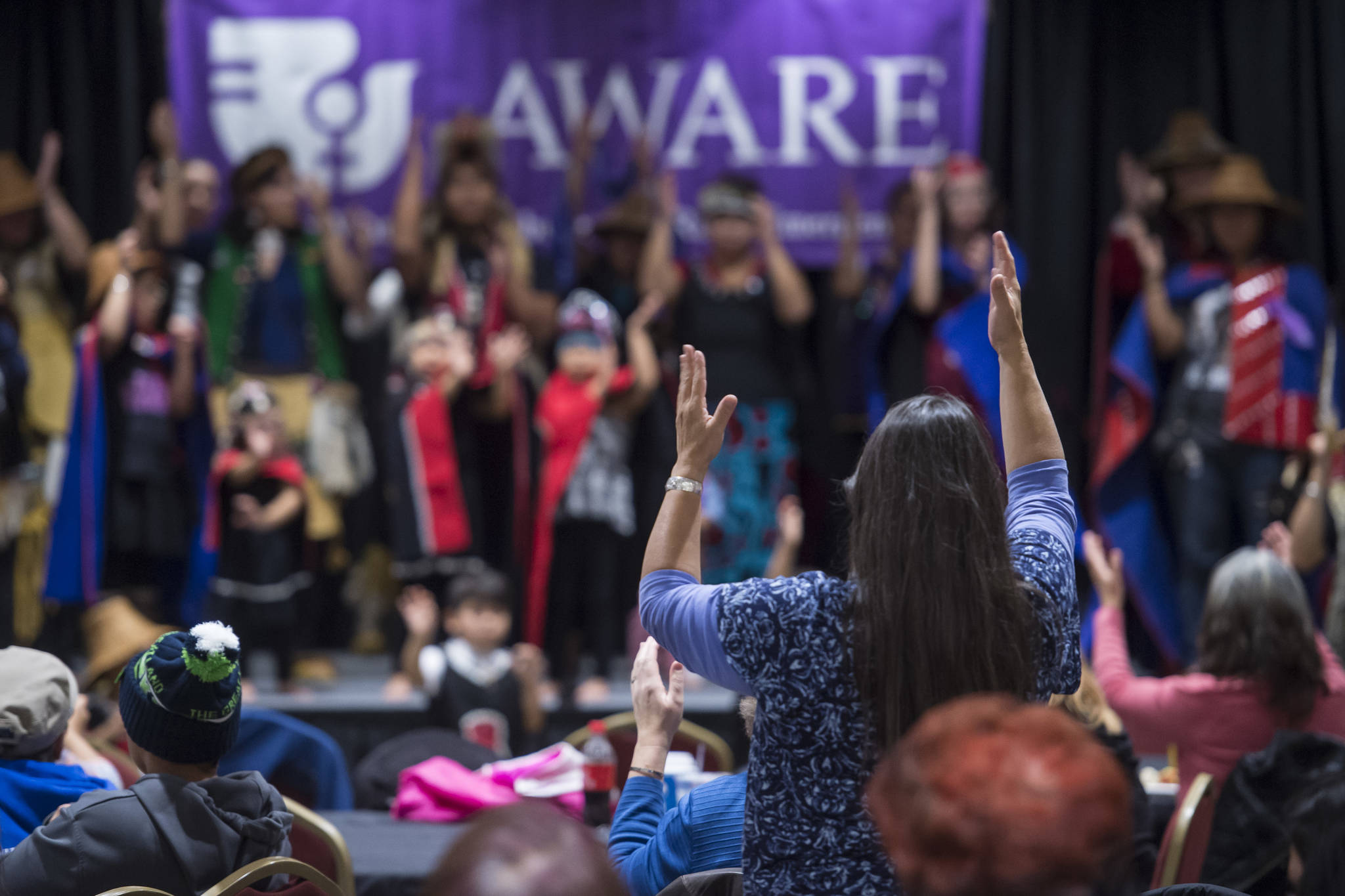With quarantine rules slamming into position as the coronavirus spreads, domestic violence awareness groups are worried that the isolation may lead to a spike in physical and emotional abuse.
“I’m extremely worried, partly because we have always known that isolation is a huge piece of the power and control dynamic that makes domestic violence,” said Mandy Cole, executive director of AWARE, in a phone interview. “One of the reasons it happens again and again is the victim is isolated.”
Alaska is known as an especially prominent state for domestic violence rates, and isolation is likely to only worsen the situation, Cole said. Isolation works against survivors of abuse in many ways, Cole said. It denies them any time away from the home, which is often the primary site of confrontations. Survivors also may have to spend more time shielding children from the abuser, which carries a psychological cost of its own.
“If everyone’s home together all the time, I can imagine the feelings of fear and anxiety over how the abuser will interact with their children will be through the roof,” Cole said. “It costs a lot. Some of the ways survivors get respite from that is leaving the house, attending groups, dropping kids off at school.”
Concerns about the susceptibility of people 60 and older to the coronavirus closes off another channel of support and safety for survivors, who may not be able to physically be around their parents.
[Woman opens up about becoming the face of Native domestic violence]
“Not being able to count on friends and family to provide support, to provide respite, to provide physical sanctuary (is another complication),” Cole said. “One of the ways AWARE measures how well we’re serving survivors is asking them how their feeling of isolation decreased. Now the world is calling for isolation, saying isolation keeps them safe, and that’s troubling for survivors. That means they could be safer from the virus, but not safe in their homes.”
Resources are still available
With many places limiting openings and pivoting to operate in the new environment of isolation and social distancing, what resources will still be available for survivors of abuse?
All of them, said a Juneau Police Department spokesperson.
“We’ll always be there,” said Lt. Krag Campbell of the JPD in a phone interview. “We are going to be available at all times, and so will all the other places, keeping staff safe and keeping the people they serve safe.”
The JPD is modifying its operational protocols to maintain safety and avoid the possibility of contamination, but they’ll still be out on the streets, responding to all calls, Campbell said.
“All the same tools available prior to COVID-19 concerns are still there,” Campbell said. “The courts are still available. They’re just trying to keep that distance. The shelters are still available.”
Cole echoed the sentiment, saying AWARE remains committed to helping survivors, even with coronavirus concerns.
“We have been working with the other shelters and town and public health to make this facility as safe as possible. We have an additional layer in place for someone with a confirmed case,” Cole said. “We have a plan in place for someone without a home. You don’t have to worry that you don’t have a place to go. We have a plan.”
[Enough is enough: Summit sought to end the cycle of violence]
Cole also emphasized that people needing help shouldn’t be afraid to get it, even amid concerns about tying up resources from the pandemic.
“There are people who are afraid to go to the hospital because we hear we need to save the resources,” Cole said. “You have to still feel like you can do that, even if it’s not virus-related.”
If you need help immediately
It’s not always easy to find time to discreetly contact help, especially during quarantine, Cole said.
“Access to confidential services has been diminished because of this,” Cole said. “Use your creativity. Take a few minutes to call and brainstorm options if you’re scared or stressed.”
People can contact emergency services at 911, or AWARE’s crisis line at 586-1090. Both are manned 24/7. Resources are also available at Thehotline.org or by texting LOVEIS to 22522.
• Contact reporter Michael S. Lockett at 757.621.1197 or mlockett@juneauempire.com.

